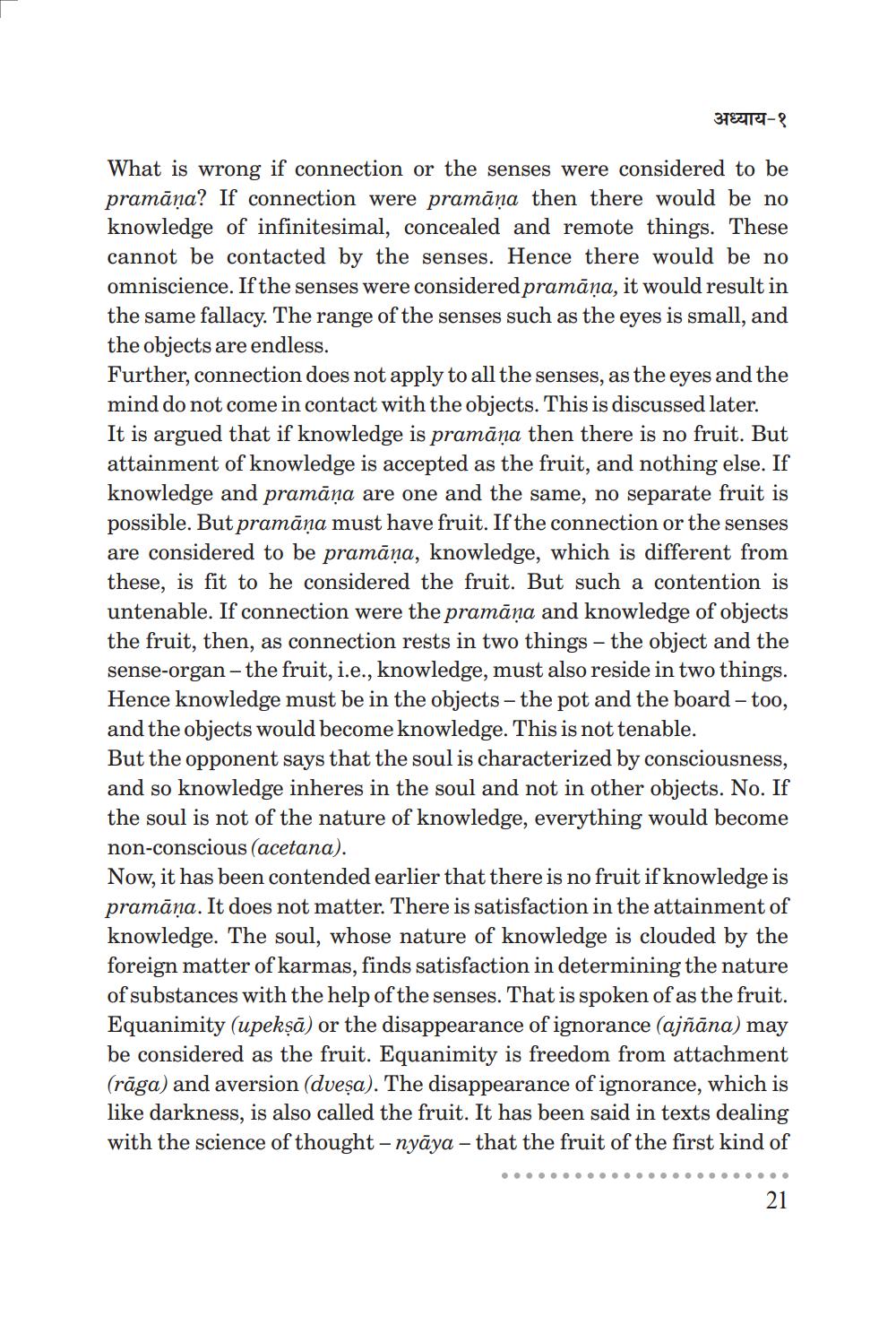________________
अध्याय-१
What is wrong if connection or the senses were considered to be pramāņa? If connection were pramāņa then there would be no knowledge of infinitesimal, concealed and remote things. These cannot be contacted by the senses. Hence there would be no omniscience. If the senses were considered pramāna, it would result in the same fallacy. The range of the senses such as the eyes is small, and the objects are endless. Further, connection does not apply to all the senses, as the eyes and the mind do not come in contact with the objects. This is discussed later. It is argued that if knowledge is pramāņa then there is no fruit. But attainment of knowledge is accepted as the fruit, and nothing else. If knowledge and pramāna are one and the same, no separate fr possible. But pramāņa must have fruit. If the connection or the senses are considered to be pramāņa, knowledge, which is different from these, is fit to he considered the fruit. But such a contention is untenable. If connection were the pramāṇa and knowledge of objects the fruit, then, as connection rests in two things – the object and the sense-organ – the fruit, i.e., knowledge, must also reside in two things. Hence knowledge must be in the objects - the pot and the board – too, and the objects would become knowledge. This is not tenable. But the opponent says that the soul is characterized by consciousness, and so knowledge inheres in the soul and not in other objects. No. If the soul is not of the nature of knowledge, everything would become non-conscious (acetana). Now, it has been contended earlier that there is no fruit if knowledge is pramāna. It does not matter. There is satisfaction in the attainment of knowledge. The soul, whose nature of knowledge is clouded by the foreign matter of karmas, finds satisfaction in determining the nature of substances with the help of the senses. That is spoken of as the fruit. Equanimity (upekṣā) or the disappearance of ignorance (ajñāna) may be considered as the fruit. Equanimity is freedom from attachment (rāga) and aversion (dveşa). The disappearance of ignorance, which is like darkness, is also called the fruit. It has been said in texts dealing with the science of thought - nyāya - that the fruit of the first kind of
.
.
.
.
.
.
.
.
.
.
.
.
.
.
.
.
.
.
.
.
.
.
.
.
21




